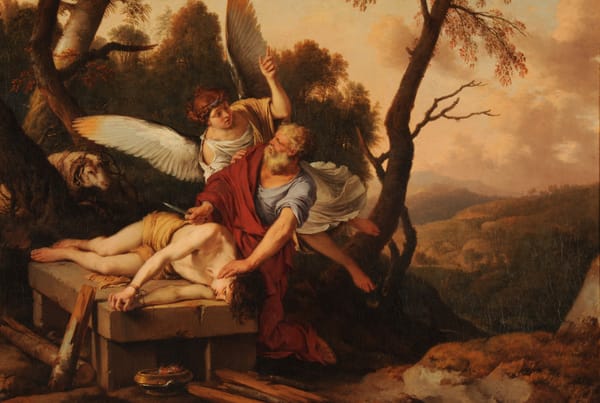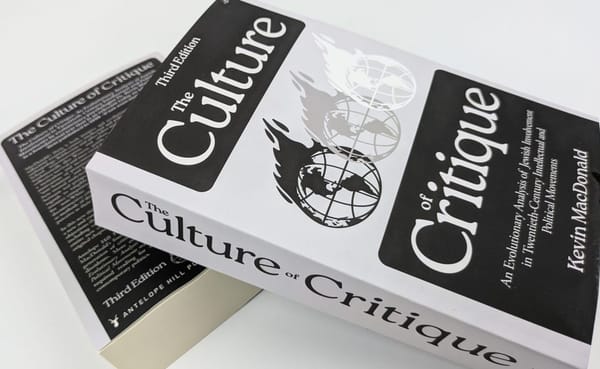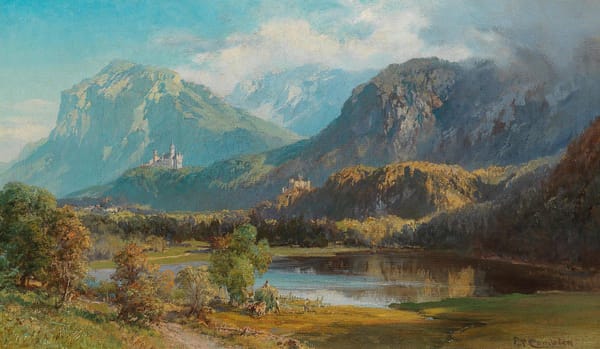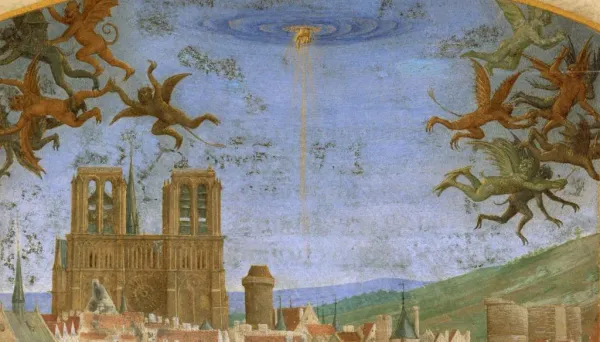Who Is My Neighbor? A Brief Introduction
Human history demonstrates that modernity’s command to love the foreign and hate the familiar is baseless and even insane.
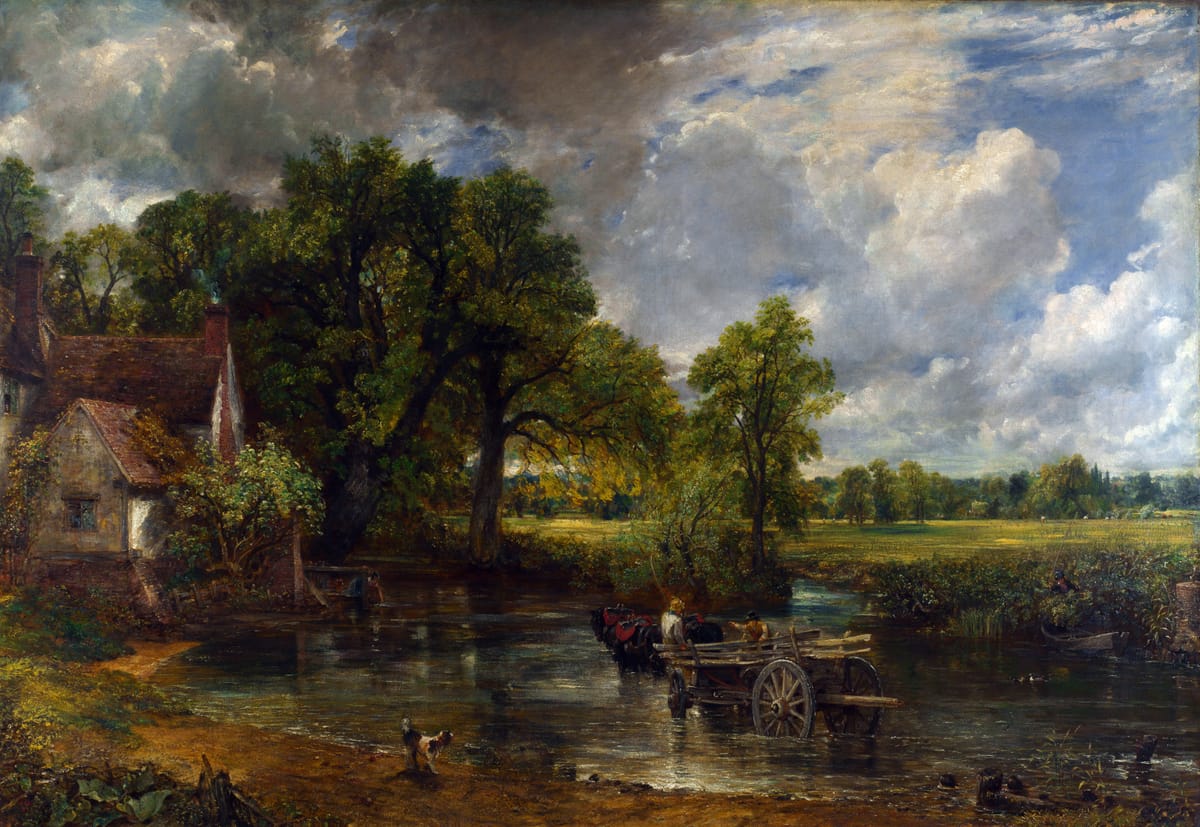
Losing The Past
Amid a world where the new is celebrated and the old is dismissed, the Colombian thinker Nicolás Gómez Dávila once observed that a collection of traditional sayings could be the most subversive text of our era. Similarly, the 18th-century philosopher Edmund Burke warned that stripping away long-held beliefs and practices leaves a void whose cost is immeasurable. Today, we are living through that loss as we witness the consequences of abandoning past wisdom that once anchored Western societies. What we need now is a return to those divine and natural truths.
The adage is widely known, that ignorance of history dooms us to repeat its mistakes. But the converse idea is that knowledge of the past empowers us to reclaim its treasures. Those unaware of their heritage are not free to build upon it; they risk both perpetuating its flaws and failing to preserve its virtues. Those who are ignorant of history do indeed repeat its mistakes. But those who are well-versed in the wisdom of the past are strengthened to combat error in the present.
Modernity has fed us a narrative that the past is a prison to escape, a tale of oppression peddled by those who claim history’s lessons are about avoiding the sins of our forebears. This view often stems from a disdain for tradition, urging us to reject our roots rather than embrace them. But what if we studied history not to flee from it, but to find inspiration in it? As George Orwell cautioned, erasing a people’s understanding of their history is a sure way to undermine their identity. By disconnecting us from our past—our heroes, our struggles, our triumphs—those who push this narrative weaken our ability to resist forces that seek to dissolve our sense of self. If we knew the stories of our ancestors, the meaning behind their monuments, and the sacrifices they made, we might be inspired to emulate their courage, unite in purpose, and rebuild what has been lost. This is a key reason for mass efforts to keep people today ignorant of their past—so that they will live in folly.
Losing Our Way
Somewhere along the way, the Western world lost its compass—a shared understanding of how to live and thrive as humans. Without this guide, modern society drifts into a sea of relativism, where truth becomes subjective, and identities—whether national, cultural, or personal—are endlessly redefined. Everything, from borders to biology, is labeled a “construct,” open to deconstruction and reinvention. This shift, as the poet W.B. Yeats described, leaves “all that is solid” melting into air, with the steadfast lacking conviction. At its core, this is a rejection of objective reality itself.
In his book The Abolition of Man, C.S. Lewis challenged this relativistic worldview, arguing that all human societies have recognized certain universal truths, which he called the Tao or natural law. These truths, independent of time or culture, reflect the way the world truly is. Lewis provided evidence of this in an appendix, cataloging shared moral principles across civilizations, from ancient Mesopotamia to medieval Europe. He suggested that these common values point to a single thread of truth woven through human history, perhaps even traceable to a shared origin. This continuity grounds us in reality, offering stability in a chaotic age.
Lewis’s examples include principles like the duty to do good to others, respect for elders, care for the young, and the importance of honesty and justice. These are not fleeting trends, but perennial realities that persist despite modern skepticism. A recently published book, Who Is My Neighbor?, builds on one of Lewis’s themes—natural human relationships—exploring how these bonds, rooted in shared kinship, place, and culture, are under siege in our time.
Natural relationships are the instinctive ties humans form with those closest to them—family, community, and people who share their history and values. Lewis noted these bonds in his appendix, highlighting how humans naturally favor those near them in blood and belonging. Yet, for centuries, particularly since the Enlightenment, there has been a concerted effort to replace these organic connections with artificial ones. Philosophers imagined a “state of nature” where humans existed as isolated individuals, free from ties to family or tribe. This fiction paved the way for theories of a universal, homogenized society—classless, nationless, and rootless—built on abstract ideals like Reason or Rights rather than lived experience.
This vision found its anthem in John Lennon’s Imagine, a song that dreams of a world without borders, beliefs, or belongings. It promises peace through the erasure of all that makes us distinct—our homes, our faiths, our peoples. But such a world exists only in the imagination, much like the mythical Lotus Eaters of Homer’s Odyssey, who forgot their purpose after tasting a drug that dulled their loyalties. Today, this same ideology is pushed through promises of a global utopia where no one owns anything, no one belongs anywhere, and everyone is “happy.” As G.K. Chesterton might have said, to achieve this “humane” dream, humanity itself must be undone.
The past few centuries have seen this experiment play out, often with catastrophic results. Attempts to create a classless society led to the deaths of millions under communist regimes. Efforts to liberate individuals from traditional roles have fractured families and communities. The push for a borderless world has eroded cultural identities, replacing diversity with uniformity. Even milder versions of this ideology—calls for open borders or universal inclusion—achieve similar ends, diluting the distinctiveness of peoples and places under the guise of harmony.
Ironically, even those who call themselves conservatives often buy into this universalist mindset. Some political leaders argue that shared ideas, like economic freedom or democratic values, matter more than shared heritage. They envision nations as abstract propositions rather than homes for particular peoples. Similarly, some Christian leaders claim that spiritual bonds override natural ones, telling believers to prioritize a global church over family or nation. These voices, whether secular or sacred, dismiss the organic ties that have defined human life for millennia, replacing them with ideals that are as fleeting as they are abstract.
Recovering The Past, Building The Future
Yet, despite this relentless push to forget, a quiet awakening is stirring. Across the West, people are rediscovering their roots, driven by a longing for what the Welsh call hiraeth—a deep yearning for a lost home, a time, or a people. This longing is not nostalgia, but a call to reclaim what has been discarded. It is not mere thought but a burning feeling leading to action. As Russell Kirk noted, after tasting every novelty and finding them wanting, people often return to ancient principles, finding them as vital as ever.
The book Who Is My Neighbor? is an invitation to join that rediscovery. It asks you to consider the lessons of nature itself, as the apostle Paul once did when he asked, “Does not nature teach you?” Like Lewis’ appendix in The Abolition Of Man, Who Is My Neighbor? is constructed to provide lengthy, orderly examples from the widest of human history, demonstrating that modernity’s command to love the foreign and hate the familiar is baseless and even insane. By aligning ourselves with the unchanging truths of the “Tao,” as Lewis called it—truths about human bonds, loyalty, and belonging—we can find recovery and renewal in our time. Who Is My Neighbor? is a guide for you and your people as you seek to rebuild what has been lost and walk the ancient paths once more.
Who Is My Neighbor? can be purchased on the publisher’s website, in paperback or hardback.
Profiting from the content?
Donate to the Cause.
Helps us reach our monthly goal.



